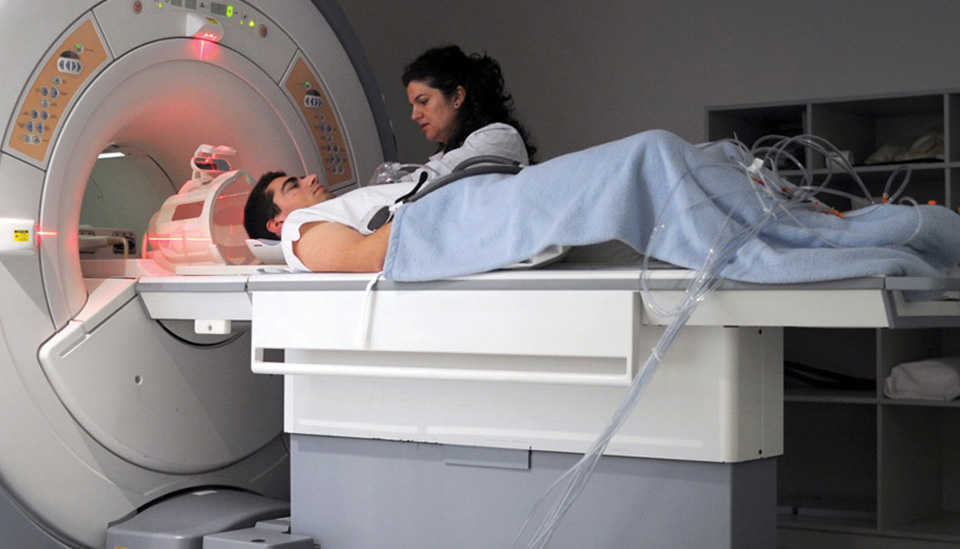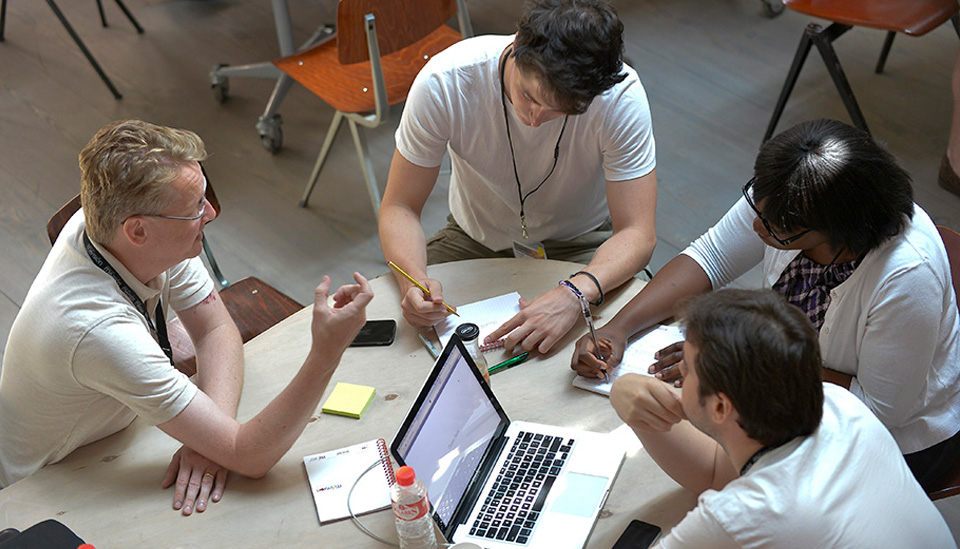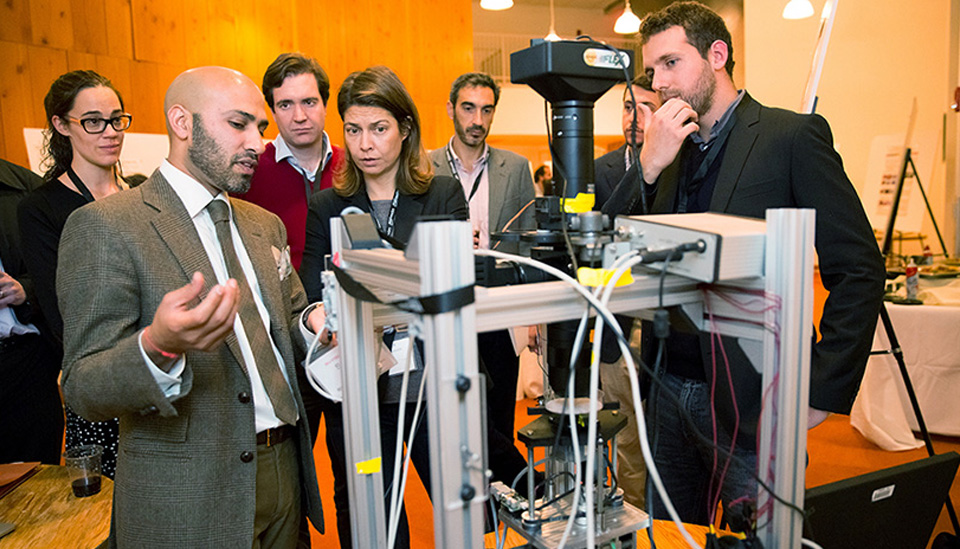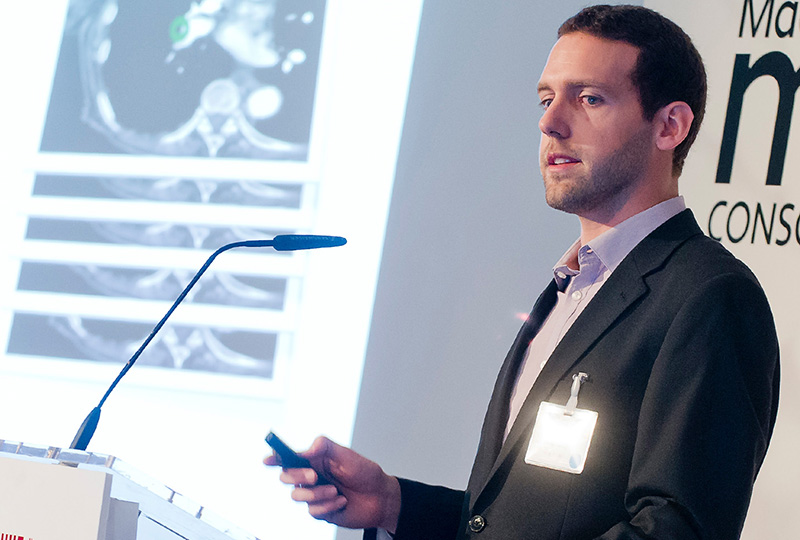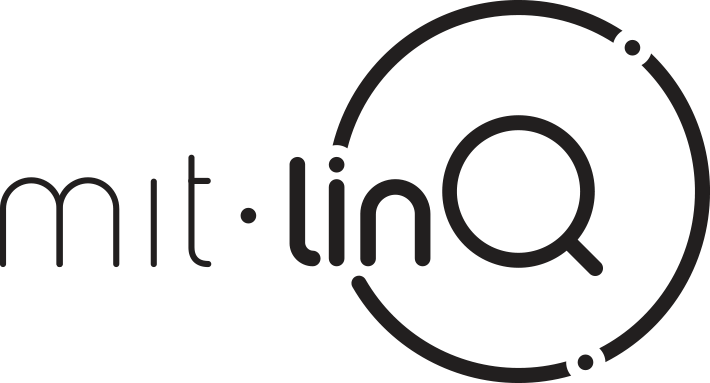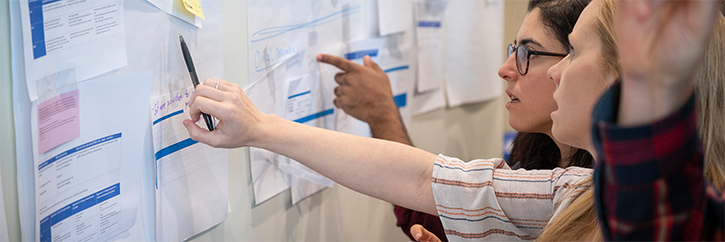



The Catalyst Fellowship at MIT linQ
Bring your talents to identify and develop research projects with high potential for healthcare impact, and accelerate your innovation career.
Catalyst fosters the development of enabling technologies to address unmet medical needs, and helps Fellows shape their career trajectories in biomedical innovation. We encourage anyone interested in these end-goals to apply. We especially encourage applicants who are interested in the possibility of nucleating projects to reduce or mitigate disparities in patient care and access.
Consider the Catalyst experience if you:
- want to learn (or learn more) about how to identify unmet medical needs and develop well-matched solutions (especially technical solutions),
- have agency in determining what ideas you wish to pursue,
- want to learn to make a case for why your work will advance medicine and healthcare,
- enjoy working in teams that are diverse in terms of profession, discipline, and more,
- value mentorship provided by a professionally-diverse team of Faculty mentors, and
- are a scientist, engineer, clinician, and/or researcher from any field interested in tackling medical challenges.
Commitment
- Initial commitment: 20% time over 6 months (January to mid-June). Weekly meetings are held online, with periodic multi-day in-person “intensifications”
- Weekly sessions: Wednesdays 10:00am – 1:00pm ET
- Weekly discussion groups: Mondays 10:00am – 11:00am ET
- First session: Wednesday, January 4, 2023; Final session July 5, 2023.
- Three in-person intensification meetings: January 17–19, February 14–16, and May 9–11. Locations TBA.
- Full opportunity: Multi-year, team based research project, led by a team of Fellows. (Contingent on project proposal approval)
Cost
Thanks to the generosity of our donors and partners, this program does not require individuals to pay tuition.
Catalyst partners 2023




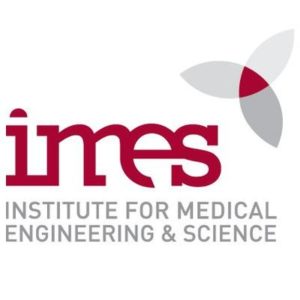

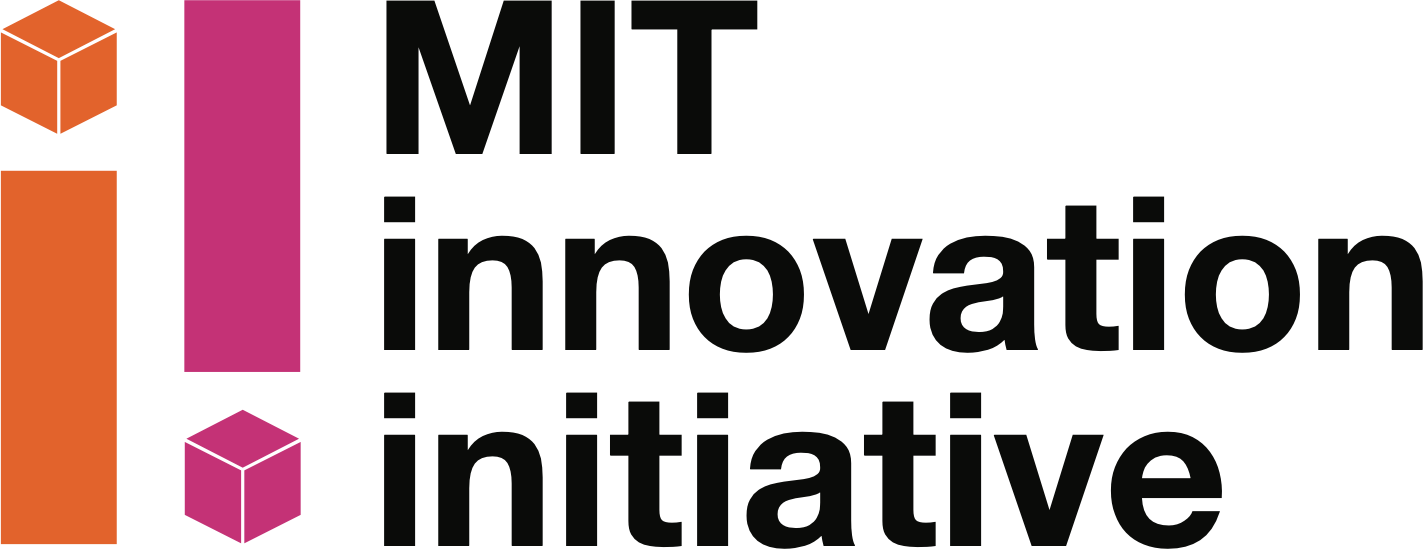


Experience highlights
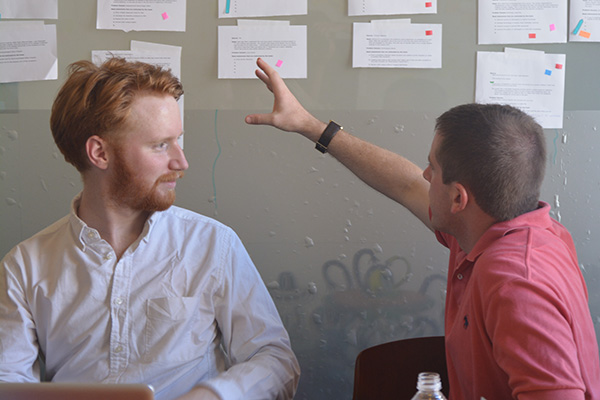

New project discovery with high potential to achieve health impact and without the constraints of a single lab or organization.
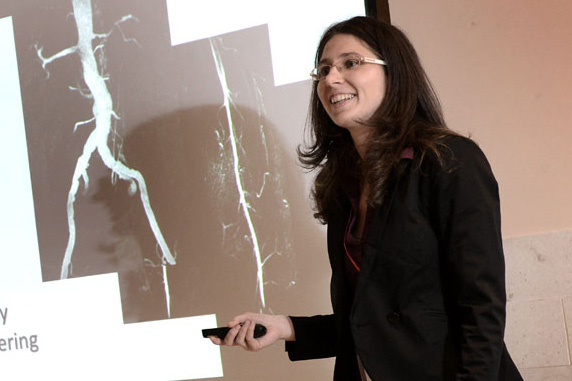

Process driven by you in a multi-disciplinary team based environment. Past teams have established new lines of research, launched start-ups, and embarked on new career trajectories.
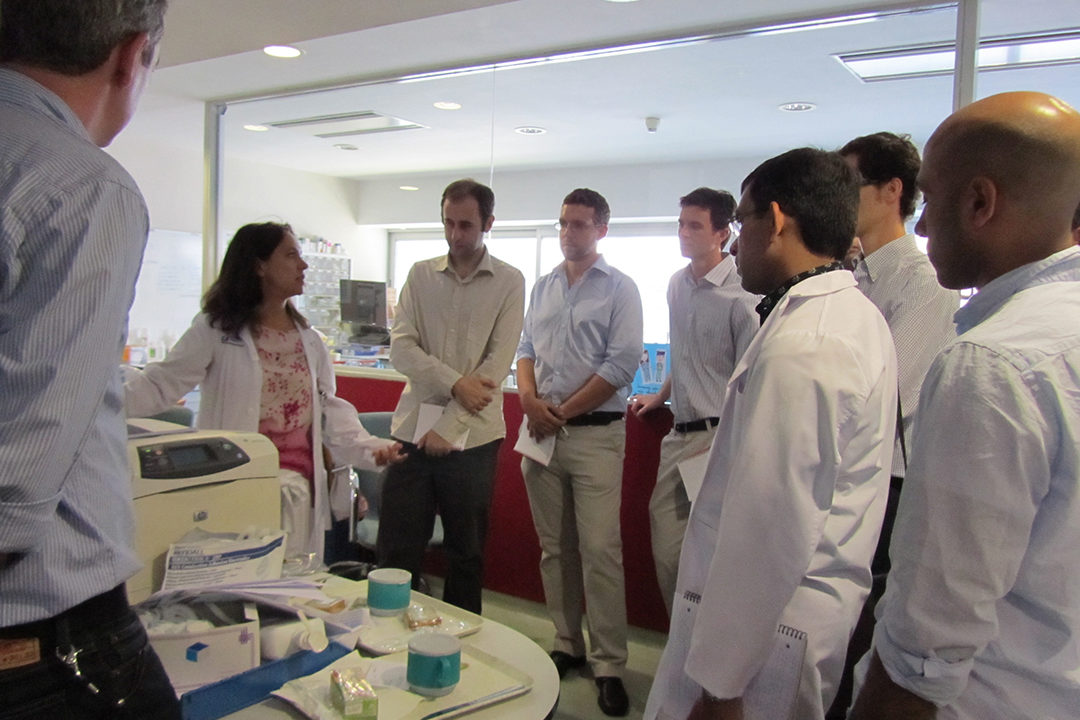

Mentored by a unique network of leading experts in their field from academic research and industry that shortens the time to realize meaningful healthcare outcomes.
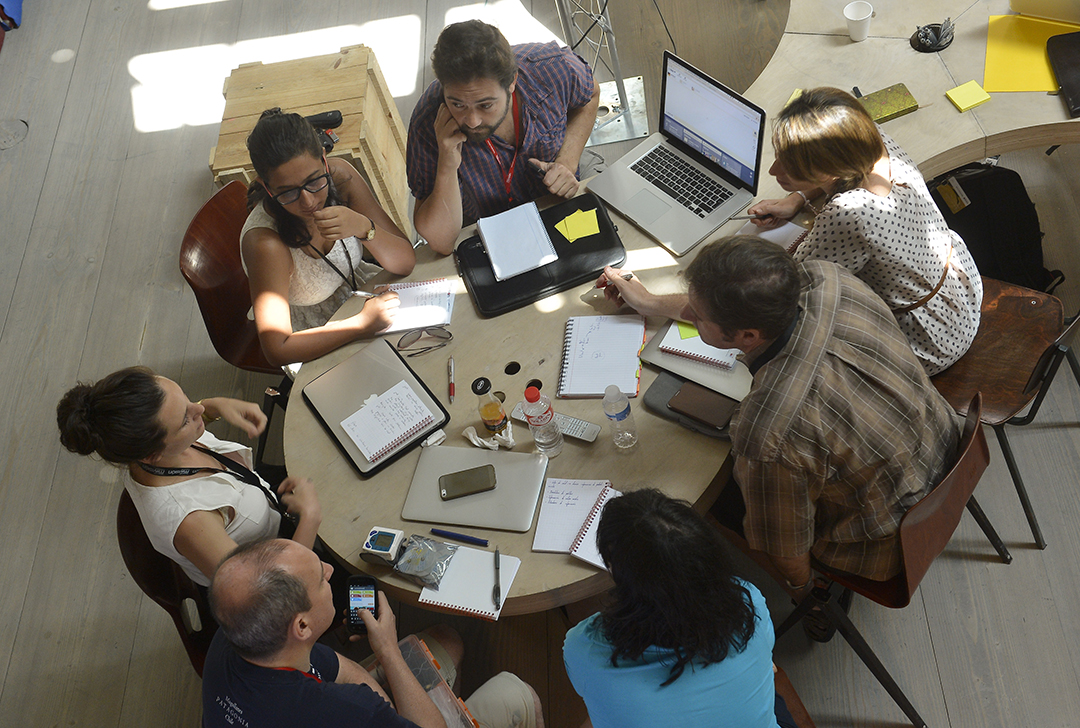

A proven MIT linQ Innovation Method that focuses on real-world medical innovation opportunities and accelerates impact.
Who should join
Catalyst is appropriate for those with interest and willingness to spend time in research, innovation, and health.
We seek a multi-talented cohort, including:
- Engineers, scientists, clinicians, researchers, designers, entrepreneurs, business developers, etc.
- Experienced professionals
- Advanced trainees nearing completion of their advanced degrees (e.g., postdocs, fellows, other professional degree candidates, etc.)
- VA- and non-VA-affiliated;
- If VA-affiliated, be from one of the sites in the VHA Innovators Network
Participants join as individuals to form teams and identify new lines of research. We do not expect candidates to have an ongoing research project to “bring” to the program, though having had some research or project experience is important. See the profiles of recent fellows, from 2022, 2021, and 2020.
While we expect candidates to have some identified area of expertise, we do not specify that area, nor do we expect candidates to be deeply familiar with the research/innovation priorities. Through our process, Fellows working in teams learn from one another, gain from hearing the perspective of others (even those who are not expert), and sometimes Fellows have to unlearn (or set aside) what they know about a problem to open the door to observations and, ultimately, innovation.
Faculty serving as mentors will help guide you through the Catalyst process, which involves cycles of convergent and divergent thinking, trial and error, iteration, progress, reassessment, creativity, critical thinking, and more iteration. Although seldom a linear path, it is always an exciting one for those who are ready for a journey from insight to impact. You and your teammates will ultimately decide which projects to move forward. Applicants don’t need to know a lot about entrepreneurship or innovation.
Cost
Thanks to the generosity of our donors and partners, this program does not require individuals to pay tuition.
Other Catalyst roles
If you’re interested in Catalyst, but not interested in becoming a Fellow, there are additional roles. Indeed, Catalyst depends on input and participation from a wide range of individuals, and in various capacities to reach our goals. Roles include (but aren’t limited to): serving as a subject matter expert, reviewing interim work by Fellows, professional development advising, teaching workshops, making connections, allowing shadowing experiences, access to labs or data, longitudinal mentoring, and curriculum development. If you're interested in participating in Catalyst in one of these roles, please complete the short survey linked below.
Common attributes of successful fellows
- Ability to apply logic and critically analyze and synthesize a broad range of source materials
- Ability to differentiate between validated facts and not-yet-validated assumptions, and to ideate a process to validate assumptions
- Willingness to work outside their field of expertise
- Ability to communicate ideas and collaborate with others with different expertise and experience
- Ability to design, create and build new technologies to solve critical problems
- Willingness to “own” your career and your project (rather than depending on direct supervision)
- Ability to receive and synthesize constructive criticism
- A team player willing to fulfill different roles in research projects
- Experience in developing and implementing research proposals
- Be willing to work in a process that is chaotic, creative and free of pre-conceived ideas or pathways
Catalyst Community Values
The Catalyst Program is aligned with MIT's Values Statement in our commitment to making our community a humane and welcoming place where people from a diverse range of backgrounds can grow and thrive. Because learning is nourished by a diversity of views, we cherish free expression, debate, and dialogue in pursuit of truth – and we commit to using these tools with respect for each other and our community.
Catalyst aims to address equity and intersectionality in biomedical research and innovation in healthcare. Race, ethnicity, age, and sex can impact how different people respond to the same intervention. Diversity of thought and perspectives through the lens of a participant’s background contributes to an enhanced learning experience, improved research and development, and overall better medical interventions.
Our community challenges ourselves to face difficult facts, speak plainly about failings in our systems, and work to overcome them. Valuing potential over pedigree, we know that talent and good ideas can come from anywhere – and we value one another’s contributions in every role.
In their own words
Impact on Fellows
Catalyst Fellows describe their experience and outcomes in the August 2021 Information Session.
Also: Fellows Ravi Rasalingam and Lola Baird share their stories from the Catalyst Fellowship
Dr Michael Charness, Chief of Staff for the Boston VA Healthcare System, explains the importance of innovation to improving patient care, and how innovation achieved in real-world practice.
The first six months
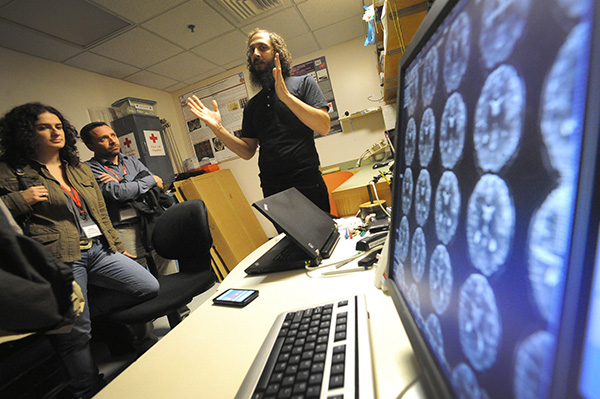

Proof of Need
Proof of Need: Identify and evaluate relevant unmet medical needs by visiting laboratories, talking with clinicians, and exploring the literature.
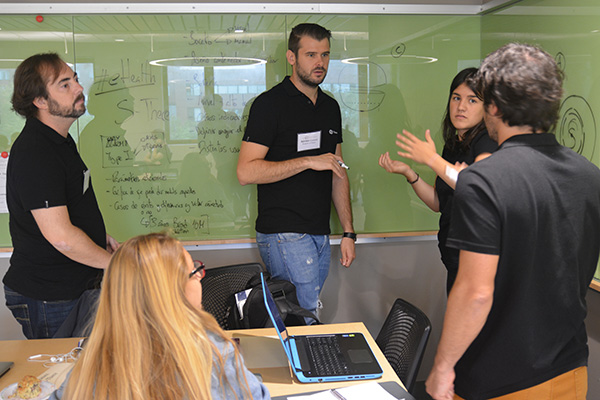

Proof of Opportunity
Proof of Opportunity: Identify and evaluate a set of possible solutions. Meet with key stakeholders to assess their potential of solving the unmet need.
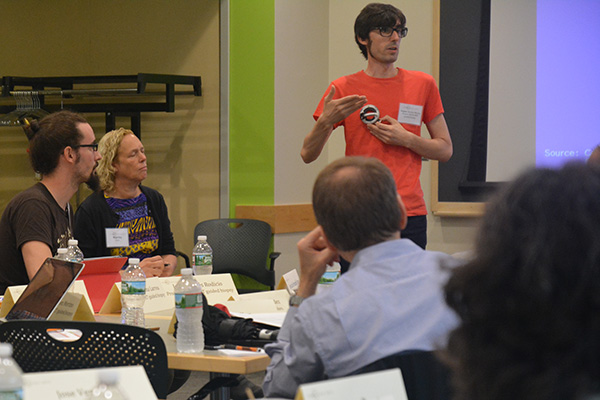

Project Proposal
Project Proposal: Develop a research project plan with milestones over a 12-18 month time frame.


Outcome
Outcome: Portfolio of validated research projects for ongoing mentorship, with real opportunity to transition to the project execution phase, project execution—exploration of funding and commercialization opportunities. Learn more about the Catalyst process
Join Catalyst
Applications for Catalyst are not open yet, but if you're interested please subscribe to our email updates.
FAQs
Want to learn more? We have detailed answers to frequently asked questions.
Want to know more about the VA–MIT partnership in Catalyst and what it means for VA providers?
Still more questions? Email us at catalyst-program@mit.edu


